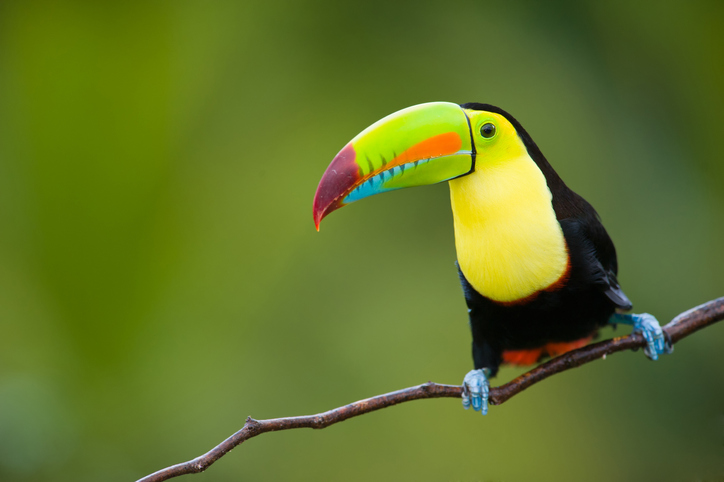

Like most places, Costa Rica has its own unique words, phrases, and uses of language, so even fluent Spanish speakers can learn something new
¡Pura vida!
This is Costa Rica’s national motto and embodies the country’s attitude to life and the importance of nature to its people. Costa Rica has been a world leader in conservation policies, with protected areas that encompass over 25% of its total landmass—the highest in the world. The phrase can be used as a greeting, in the middle of sentences, or as a response to anything positive. Ticos (see below) love hearing visitors say it.
Tico(a)
Costa Ricans refer to themselves as Ticos, so it’s not offensive at all. The term comes from the Costa Rican habit of adding the diminutive -tico to the ends of words.
Tuanis
This phrase means “good” or “cool,” or just demonstrates enthusiasm about anything. When the Spanish newspaper El País published an atlas of the representative words of Spanish-speaking countries, writer and journalist Carlos Cortés chose tuanis as the word that best represented Costa Rica, explaining: “It doesn’t come from ‘too nice,’ as said by Mexican comedian Adal Ramones when he imitates us, but rather from the military slang of the Salvadoran General Malespín in the 19th century.”
Malespín slang created new words by substituting letters. In this case, the t for a b, the a for an e, and the i for an o, so tuanis actually comes from buenos.
Mae
This means “guy” or “dude” and is mainly used for men but can refer to a woman. Don’t call someone you just met “mae,” as it can mean an “average Joe.” However, between close friends, mae is used all the time as a conversation filler, similar to how the British and Australians use mate.
Usted
Costa Ricans use usted much more than many other Spanish speakers and hardly ever use tú, preferring the informal vos, like many Central and South Americans. Don’t worry about it too much, though, as the easygoing Ticos understand that it’s tricky.
Jupa
Jupa is simply a Costa Rican way of referring to the head. A big head is called a jupón.
¡Qué guava!
This means “how lucky!”
Chepe, Moncho, and El Puerto
These are nicknames for the cities of San José, San Ramón, and Puntarenas, respectively.
El Puerto (the port) makes sense, as there’s a port in Puntarenas, but the other two are more interesting.
Chepe is the nickname for the name José and Moncho is the nickname for Ramón. So basically, they took the nicknames for people and applied them to the cities.
Rulear
This verb is simply another way of saying “to sleep” and can directly replace dormir.
Diay/idiay
This is an exclamation that expresses disbelief or confusion, like OMG, but it can also be used as a conversation filler.
Suave
In the unlikely event that someone gets agitated, this means “chill out,” “calm down,” or “take it easy.”
Jamar
Jamar is a colloquial replacement for comer (to eat).
¡Qué salidas!
A salida is a departure, but this actually means “What nonsense!” The verb salir is used sometimes to mean “comes out with,” as in “He comes out with the craziest things!”
Al chile
This phrase expresses surprise or shock, translating to “Really?” or “Are you serious?”







